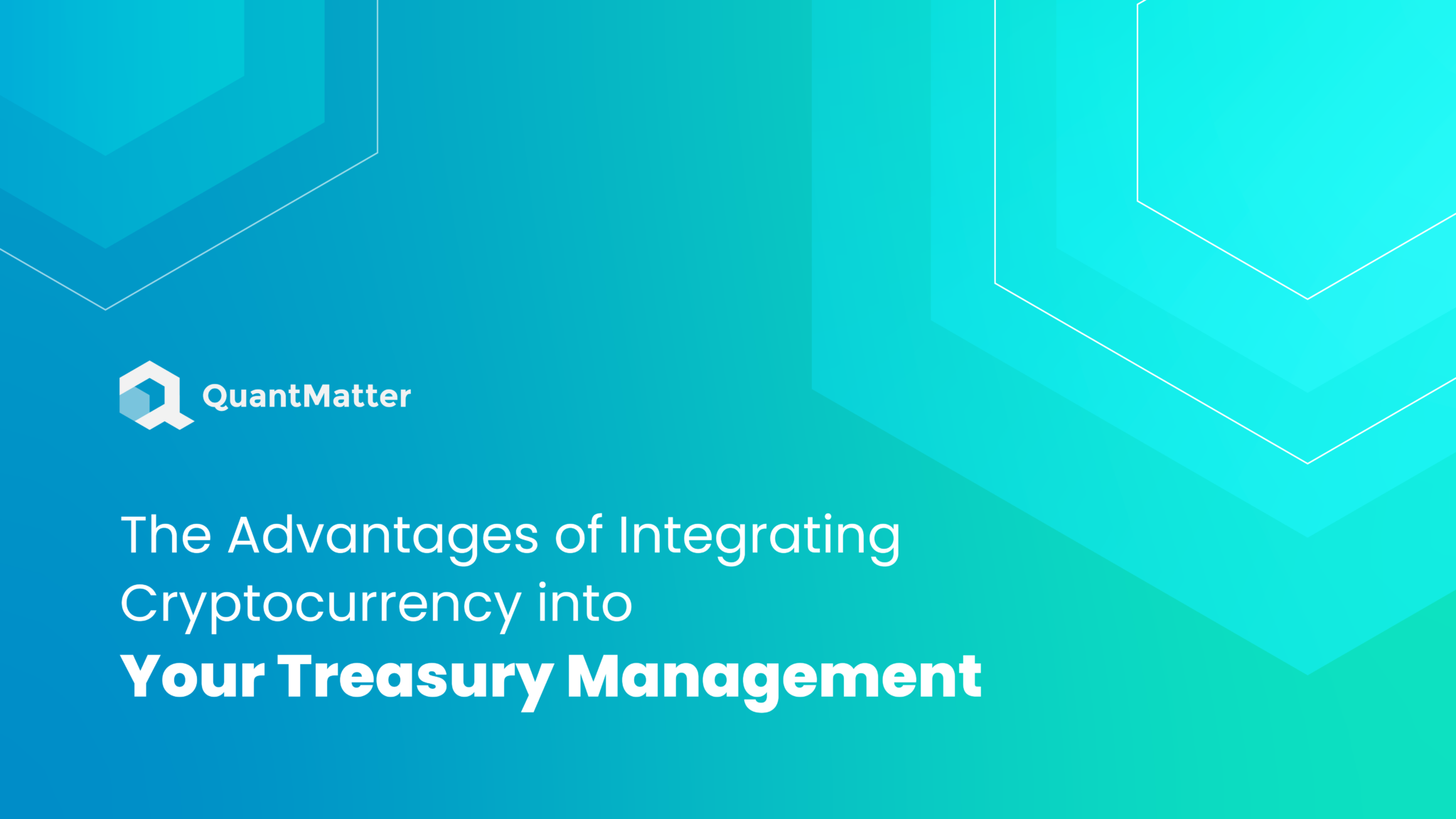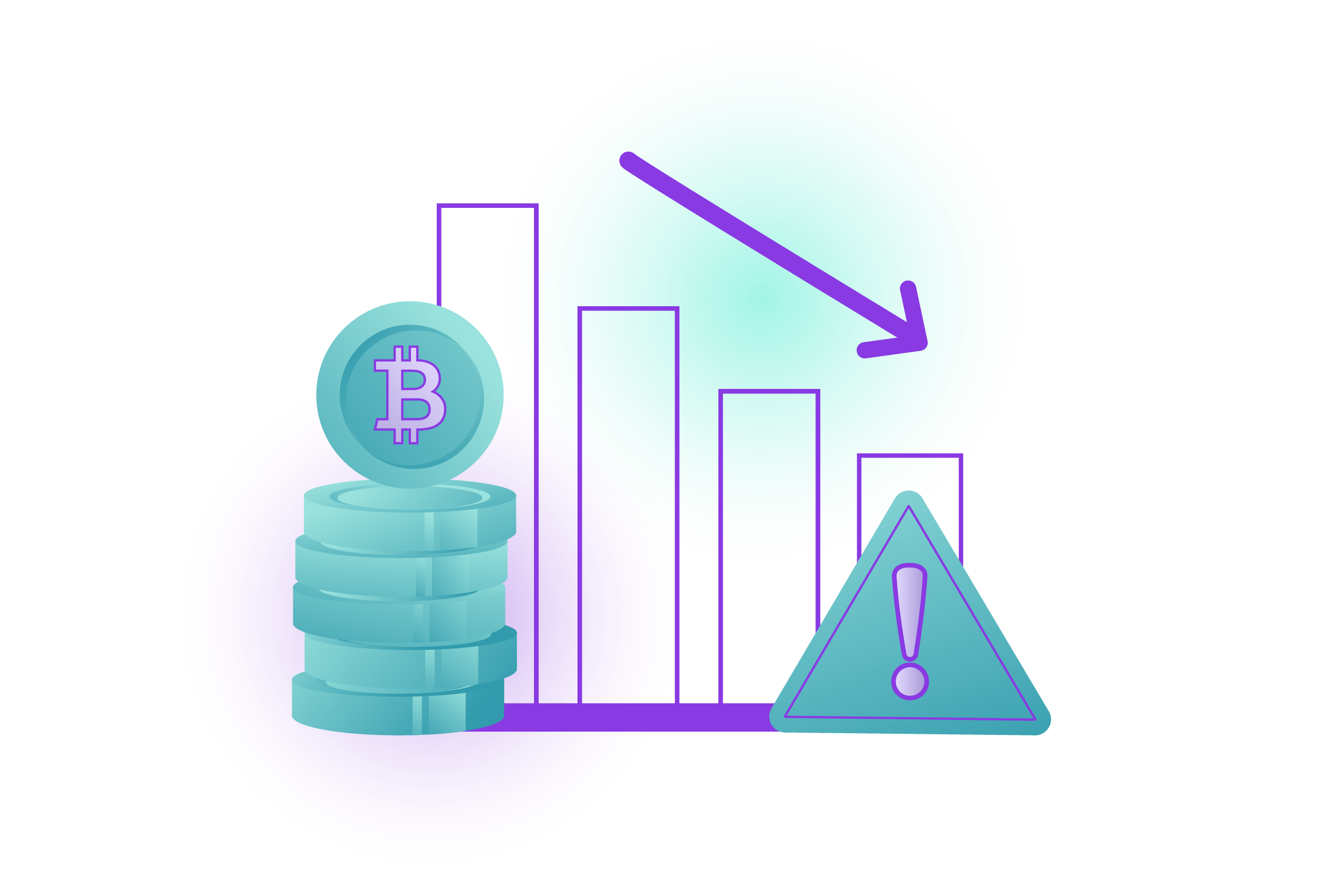
In recent years, the world has witnessed a rapid rise in the popularity and adoption of cryptocurrencies. Bitcoin, Ethereum, and other digital currencies have emerged as viable alternatives to traditional fiat currencies. While cryptocurrencies were initially associated primarily with investment and speculative trading, they are increasingly being recognized for their potential to revolutionize various sectors, including treasury management.
Treasury management plays a crucial role in any organization, as it involves overseeing and optimizing the financial assets, investments, and cash flows of a company. By integrating cryptocurrencies into treasury management strategies, businesses can unlock a myriad of benefits and tap into a new era of financial innovation. In this article, we will explore the advantages of incorporating cryptocurrencies into treasury management and shed light on how they can enhance efficiency, security, and flexibility.
Understanding Cryptocurrency

Cryptocurrency is a type of digital or virtual currency that uses cryptographic technology to secure transactions and control the creation of new units. It operates independently of a central authority, such as a government or a bank, and relies on decentralized networks called blockchains.
A blockchain is a distributed ledger that records all transactions made with a particular cryptocurrency. It consists of a chain of blocks, where each block contains a list of transactions. These blocks are connected to each other in a chronological order, creating a permanent and transparent record of all transactions.
To ensure the security and integrity of the blockchain, cryptocurrencies use cryptographic techniques. Transactions are encrypted to protect the privacy of the participants and to prevent unauthorized access or tampering. Additionally, the blockchain’s decentralized nature makes it resistant to censorship and fraud, as there is no single point of control.
The creation of new units of a cryptocurrency, also known as mining, is another essential aspect. Miners play a crucial role in validating transactions and adding them to the blockchain. They use powerful computers to solve complex mathematical problems, which require significant computational power. Once a miner solves a problem, they add a new block to the blockchain and are rewarded with a certain amount of the cryptocurrency.
Also read: A List of Top Crypto Market Makers
The Advantages of Cryptocurrency in Treasury Management

Treasury management plays a critical role in maintaining the financial health and stability of an organization. In this section, we will explore the advantages that cryptocurrencies offer in the realm of treasury management. From enhanced liquidity management and improved transactional efficiency to reduced costs and enhanced security, cryptocurrencies present unique opportunities for treasury professionals. We will delve into real-world examples and best practices, highlighting how organizations can leverage cryptocurrencies to optimize their treasury operations and gain a competitive edge.
Enhanced Financial Security
By integrating cryptocurrency into your treasury management strategy, you can significantly enhance the security of your financial transactions. Cryptocurrencies utilize advanced cryptographic techniques to secure transactions, making them highly resistant to fraud, hacking, and identity theft. The decentralized nature of cryptocurrencies also reduces the risk of a single point of failure, ensuring greater resilience against cyber attacks.
Streamlined International Transactions
Traditional cross-border transactions are often marred by lengthy processing times, high fees, and complex intermediaries. However, with cryptocurrency, international transactions can be executed quickly and at a fraction of the cost. Cryptocurrencies eliminate the need for intermediaries, enabling peer-to-peer transactions that bypass traditional banking systems. This streamlined approach not only saves time and money but also facilitates seamless global trade.
Cost Reduction and Efficiency Boost
Integrating cryptocurrency into your treasury management can result in significant cost reductions and increased operational efficiency. Cryptocurrencies eliminate the need for intermediaries, such as banks or payment processors, thereby reducing transaction fees. Moreover, the automation and smart contract capabilities of certain cryptocurrencies can streamline processes, eliminating manual paperwork and reducing administrative overhead.
Transparent and Immutable Ledger
One of the key advantages of cryptocurrencies is their transparent and immutable nature. Every transaction conducted using cryptocurrencies is recorded on a public blockchain, which can be accessed and verified by anyone. This transparency ensures accountability and eliminates the possibility of fraudulent activities. Additionally, the immutability of blockchain technology prevents tampering or alteration of transaction records, further enhancing the integrity of your financial operations.
Access to DeFi and Investment Opportunities
Integrating cryptocurrency into your treasury management opens up doors to decentralized finance (DeFi) and investment opportunities. DeFi platforms allow you to earn interest, provide liquidity, and participate in various financial activities without the need for traditional intermediaries. By embracing cryptocurrencies, you can tap into a vast array of investment options and potentially generate higher returns for your organization’s funds.
Easier Cross-Border Payments
Cryptocurrencies offer a seamless solution for cross-border payments, eliminating the complexities associated with traditional remittance methods. With cryptocurrency, you can transfer funds across borders quickly, securely, and at a significantly lower cost. This accessibility is particularly beneficial for organizations involved in global trade or businesses with international operations.
Risks and Challenges of Integrating Cryptocurrency

While the benefits of integrating cryptocurrency into treasury management are significant, it is essential to acknowledge the associated risks and challenges. This section will shed light on the potential pitfalls and hurdles that organizations may encounter when incorporating cryptocurrencies into their treasury functions.
From regulatory uncertainties and price volatility to cybersecurity threats and operational complexities, we will examine the multifaceted risks and provide insights into mitigating strategies. By understanding these challenges, treasury professionals can make informed decisions when considering cryptocurrency integration.
Volatility and Price Fluctuations
One of the main challenges associated with cryptocurrencies is their volatility and price fluctuations. Cryptocurrency markets are highly dynamic and can experience significant price swings in short periods. This volatility poses risks, especially if your treasury management strategy involves holding a substantial amount of cryptocurrency assets. Mitigating this risk requires careful monitoring, risk assessment, and appropriate hedging strategies.
Regulatory and Compliance Considerations
Integrating cryptocurrencies into treasury management requires thorough understanding and adherence to regulatory and compliance frameworks. The regulatory landscape surrounding cryptocurrencies is still evolving, and organizations must navigate various legal and compliance requirements. Ensuring compliance with anti-money laundering (AML) and know-your-customer (KYC) regulations is crucial to prevent illicit activities and maintain a positive reputation.
Implementing Cryptocurrency in Treasury Management
Implementing cryptocurrencies in treasury management requires careful planning, robust infrastructure, and a comprehensive understanding of the organizational context. This section will guide you through the key considerations and steps involved in successfully integrating cryptocurrency into treasury operations.
From assessing the suitability of cryptocurrencies for your organization to developing robust governance frameworks and partnering with reliable service providers, we will provide actionable insights to ensure a smooth and effective implementation process.
Developing a Cryptocurrency Policy
Before integrating cryptocurrencies into your treasury management, it is essential to develop a clear and comprehensive cryptocurrency policy. This policy should outline the purpose, scope, and guidelines for cryptocurrency usage within your organization. It should address key areas such as risk management, security measures, governance, and compliance.
Establishing Secure Wallets and Exchanges
To ensure the security of your cryptocurrency holdings, it is crucial to establish secure wallets and exchanges. Wallets are digital storage solutions that allow you to securely store, send, and receive cryptocurrencies. Exchanges, on the other hand, provide platforms for buying and selling cryptocurrencies. Choosing reputable wallets and exchanges with robust security features is paramount to safeguarding your digital assets.
Training and Education for Staff
Integrating cryptocurrency into treasury management requires a well-informed and knowledgeable workforce. Providing comprehensive training and education to your staff regarding cryptocurrencies, blockchain technology, and best practices is crucial. This training will empower your team to make informed decisions, recognize potential risks, and effectively manage cryptocurrency assets within your treasury management strategy.
Future Trends and Potential of Cryptocurrency
Cryptocurrency continues to evolve rapidly, influencing various sectors of the global economy. In this section, we will explore the future trends and potential of cryptocurrencies in treasury management.
We will delve into emerging technologies, such as decentralized finance (DeFi) and central bank digital currencies (CBDCs), and discuss their implications for treasury operations. By understanding the evolving landscape, industry professionals can stay ahead of the curve and harness the transformative power of cryptocurrencies to drive innovation and growth.
Central Bank Digital Currencies (CBDCs)
Central Bank Digital Currencies (CBDCs) are digital versions of fiat currencies issued by central banks. As more countries explore the concept of CBDCs, there is potential for increased integration between traditional treasury management and digital currencies. CBDCs can provide enhanced efficiency, reduced costs, and improved financial inclusion, revolutionizing the way organizations manage their finances.
Integration with Internet of Things (IoT)
The integration of cryptocurrencies with the Internet of Things (IoT) holds great promise for treasury management. IoT devices can be programmed to autonomously initiate cryptocurrency transactions, enabling seamless and secure machine-to-machine payments. This integration can streamline supply chain processes, automate inventory management, and enhance overall financial efficiency.
Mainstream Adoption and Mass Appeal
Cryptocurrencies are gradually gaining mainstream adoption and mass appeal. As more individuals and organizations recognize the advantages of cryptocurrencies, their usage and acceptance continue to grow. This trend paves the way for wider adoption in treasury management practices, as organizations strive to stay ahead in the evolving digital landscape.
Also read: Who are the market makers in the cryptocurrency markets?
Conclusion
Integrating cryptocurrency into your treasury management strategy offers numerous advantages that can revolutionize your organization’s financial operations. From enhanced financial security and streamlined international transactions to cost reduction and increased access to investment opportunities, cryptocurrencies present a new frontier in treasury management.
However, it is crucial to navigate the risks and challenges associated with cryptocurrencies while ensuring compliance with regulatory frameworks. By staying informed, developing robust policies, and embracing the potential of cryptocurrencies, you can unlock the full benefits and drive the future of treasury management.
I'm Carina, a passionate crypto trader, analyst, and enthusiast. With years of experience in the thrilling world of cryptocurrency, I have dedicated my time to understanding the complexities and trends of this ever-evolving industry.
Through my expertise, I strive to empower individuals with the knowledge and tools they need to navigate the exciting realm of digital assets. Whether you're a seasoned investor or a curious beginner, I'm here to share valuable insights, practical tips, and comprehensive analyses to help you make informed decisions in the crypto space.
-
Carinahttps://quantmatter.com/author/carina/
-
Carinahttps://quantmatter.com/author/carina/
-
Carinahttps://quantmatter.com/author/carina/
-
Carinahttps://quantmatter.com/author/carina/

